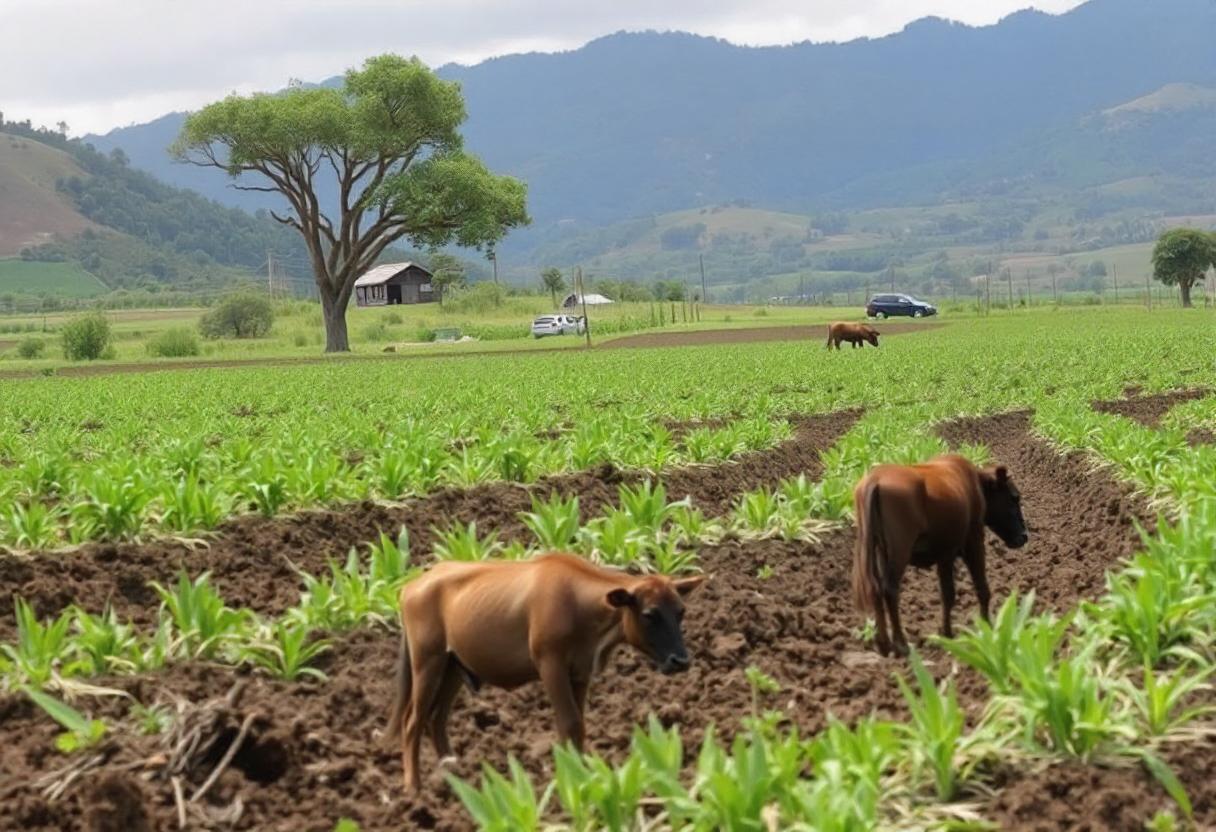
Understanding Biodiversity in Agriculture
Biodiversity refers to the variety of life forms in a particular habitat or ecosystem, including plants, animals, fungi, and microorganisms. In agriculture, biodiversity encompasses the diversity within and between species of crops, livestock, and other organisms that contribute to agricultural systems. It is crucial for ecosystem resilience, productivity, and sustainability.
Impact of Modern Agricultural Practices on Biodiversity
Modern agricultural practices, including monoculture, intensive use of chemical inputs, and habitat conversion, have significantly impacted biodiversity. Monoculture systems, where a single crop species is grown over large areas, reduce the variety of plants and animals in an area. This lack of diversity can make crops more vulnerable to pests and diseases, leading to increased use of pesticides and herbicides.
Intensive farming practices often involve the use of chemical fertilizers and pesticides, which can harm non-target species and disrupt ecological balance. The conversion of natural habitats into agricultural land also leads to habitat loss, reducing the availability of shelter and resources for wildlife.
Benefits of Biodiversity in Agricultural Systems
Biodiversity in agricultural systems offers numerous benefits, including enhanced ecosystem services such as pollination, pest control, and soil fertility. Diverse plant species can support a range of pollinators, including bees and butterflies, which are essential for crop fertilization. Natural predators and parasitoids can help manage pest populations, reducing the need for chemical interventions.
Soil health is also improved by biodiversity. Different plant species contribute various organic materials to the soil, which enhances nutrient cycling and soil structure. This can lead to more resilient and productive agricultural systems.
Strategies to Promote Biodiversity in Agriculture
To mitigate the loss of biodiversity, several strategies can be employed in agricultural practices:
- Agroecology: Incorporating ecological principles into agricultural practices can enhance biodiversity. Agroecological approaches promote the use of diverse crop species, organic farming, and reduced reliance on synthetic chemicals.
- Crop Rotation and Diversification: Rotating crops and incorporating multiple crop species can prevent soil degradation, manage pests, and support a variety of beneficial organisms.
- Conservation Tillage: Reducing soil disturbance through conservation tillage practices can help maintain soil structure and support soil-dwelling organisms.
- Establishing Buffer Zones: Planting cover crops, hedgerows, and maintaining natural vegetation around agricultural fields can provide habitat for wildlife and reduce the impact of farming on surrounding ecosystems.
Policy and Institutional Support for Biodiversity Conservation
Effective biodiversity conservation in agriculture requires supportive policies and institutional frameworks. Governments and agricultural organizations can promote biodiversity-friendly practices through incentives, subsidies, and education programs. Policies that protect natural habitats, support sustainable farming practices, and encourage research on biodiversity can contribute to the preservation of agricultural biodiversity.
Investing in research and development of biodiversity-friendly technologies and practices is essential for addressing the challenges of biodiversity loss in agriculture. Collaboration between farmers, researchers, policymakers, and conservationists is crucial for developing and implementing strategies that balance agricultural productivity with biodiversity conservation.